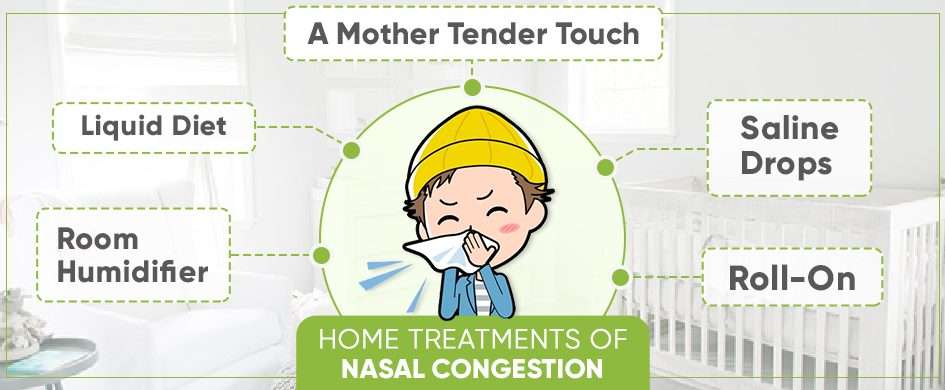
What to do if the baby is suffering from nasal congestion?
- by Baby Organo
- 1 min 42 sec
Table of Contents
Nasal congestion occurs when extra mucus (phlegm) gets accumulated in the nose and respiratory passage. Although, congestion seems to be very unpleasant, but this is a body’s natural way to fight against any infection whether it is due to virus or bacteria. However, due to the nasal congestion, baby feels discomfort, a problem in easy breathing and sometimes difficulty in taking mother’s feed too.
Mild congestion due to cough and cold is considered to be okay and does not need any superior medical intervention, however, it makes a baby dull and cranky in its behavior. Therefore, to help your baby in clearing that extra congested cough, it is good to unblock baby stuffy nose naturally. This will make them comfortable, playful and active.
BABY NASAL CONGESTION REASON
A baby may suffer from nasal congestion due to any of the following reason -
- Common cold and flu
- Poor air quality in the surrounding.
- Allergies.
- Dry air.
HOME TREATMENTS OF NASAL CONGESTION IN BABIES
There are certain easy home treatments of nasal congestion in babies. These remedies are safe and often been advised by medical experts. These home remedies are termed to be as ‘first point of the solution’ if there is mild nasal congestion, otherwise, medical intervention is suggested.
-
Liquid Diet- While suffering from nasal congestion, a baby tends to feel dehydrated as he/she is unable to take proper feed. Moreover, the taste buds also get disturbed. Therefore, in this kind of scenario, always keep your baby well hydrated by serving him/her liquid diet. If your baby is above the age the 6 months, serve him/her with warm vegetable soup, rice water, dal ka paani, etc. On the other hand, if your baby is below the age of 6 months, then try to feed him the milk by keeping him in a bit of slanting position. The slanting position will make your baby comfortable to take feed.
The more a baby takes liquid diet the quickly he will recover from the nasal congestion. - A mother tender touch- It is said that a mother’s soft touch is well sufficient for a baby to feel relaxed and calm. Whenever you see that your baby is behaving cranky due to nasal congestion, hold him in an upright position and cuddle him/her for some time. Trust, this loving gesture work as a miracle for a baby.
- Room Humidifier- A baby stuffy nose gets unblocked if there is a proper humidity in the environment. And this can be best-done through room humidifier. These room humidifiers moisten the dry air, which is one of the reasons behind nasal congestion in babies. When the air becomes moist, it becomes easy for a baby to breathe comfortably and it helps in treating nasal congestion too. The room humidifiers are widely available in medical stores as well as in every online shopping platforms.
- Saline Drops - Saline drops are often suggested by the doctors as it loosens the thick mucus, thereby making it easy to get clear-ff from the nasal passage. These saline drops are safe and nothing but the solution of salt and water in an appropriate percentage. The good and branded saline drops can be availed from the nearest medical store on Over-the-Counter basis (without a prescription). One just needs to put one drop in each of the nostrils before the baby gets into his/her sleep.
- Roll-On - Nowadays, medicated and safe roll-ons are available to treat nasal congestion in babies. These roll-ons are safe for pediatric use and do not cause any harm to a baby’s gentle and soft skin. Prefer to buy natural ingredients based cold relief roll-on as these are good for overall cough and cold relief.
You may buy Cough And Cold Relief Roll-on Online here.
When to See a Doctor
In general, home treatments for nasal and chest congestion are effective and gives relief to a baby, however, if you see no improvement in your child’s condition even after a couple of days, consult a doctor. Make sure your baby does not show any sign of dehydration. If he/she does, call immediately to your doctor.
- Tags:
- Parenting tips


